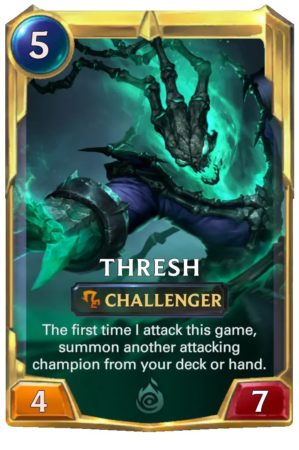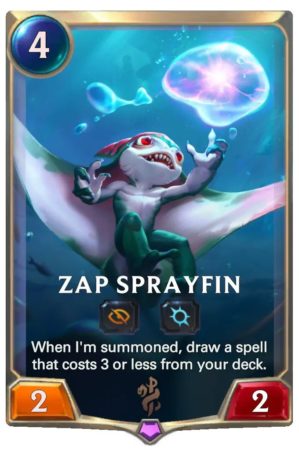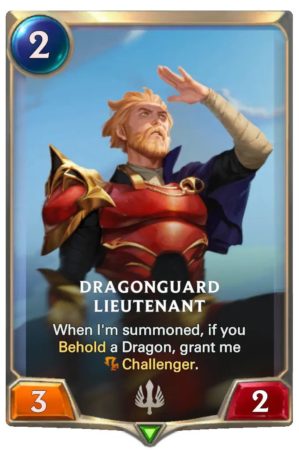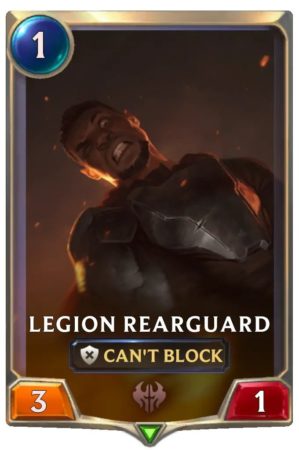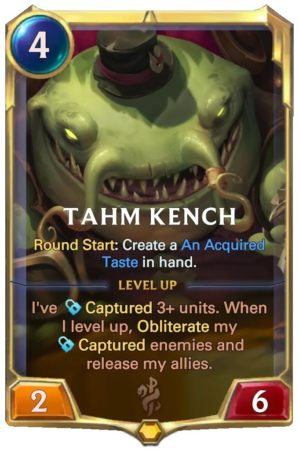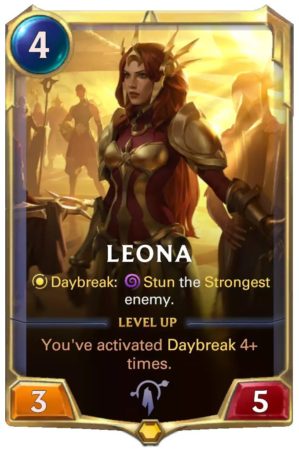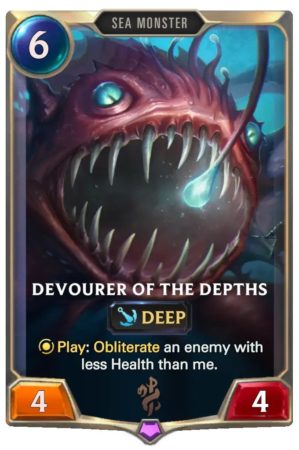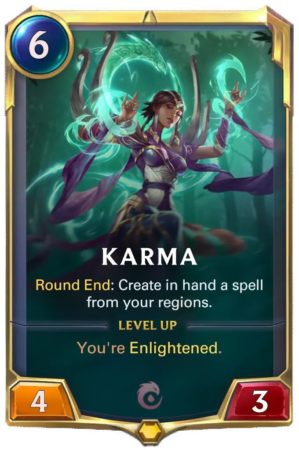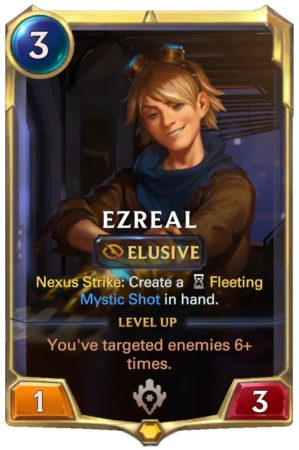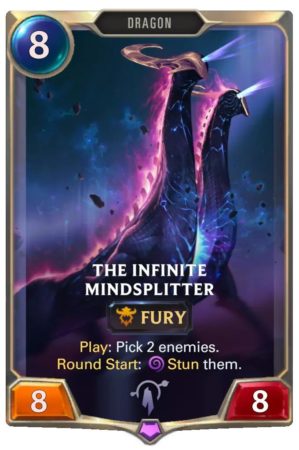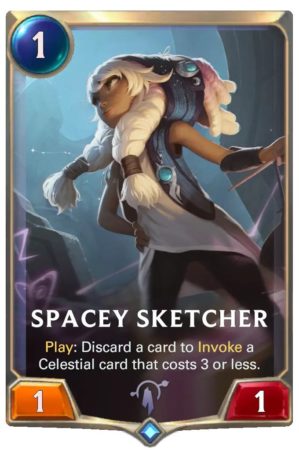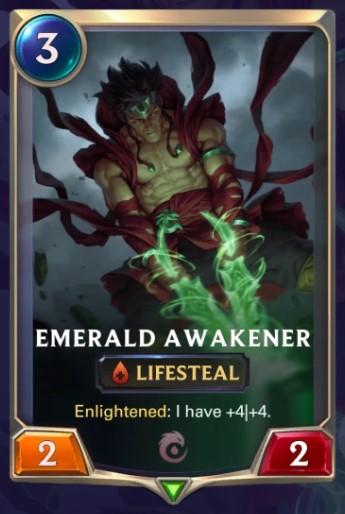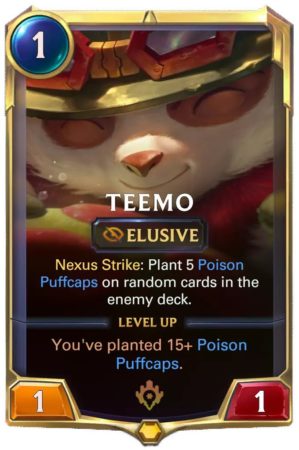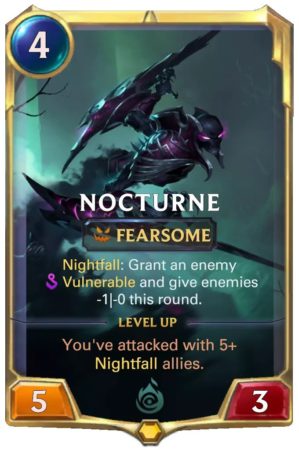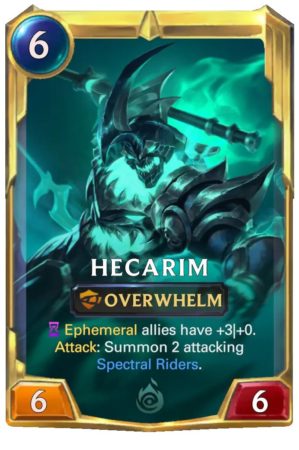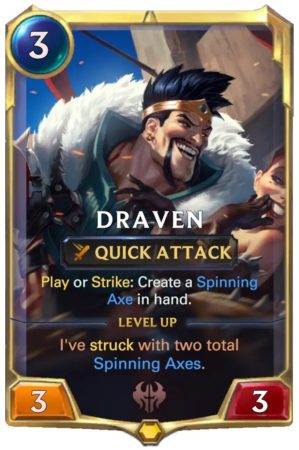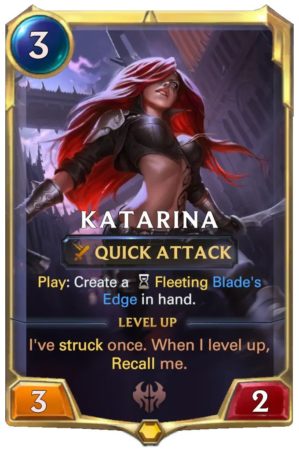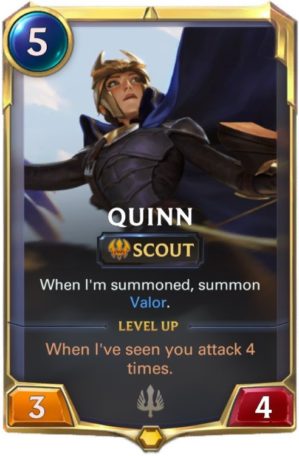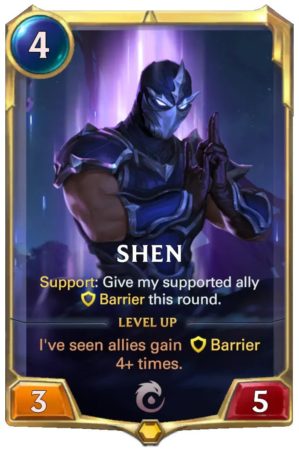The Basics of Legends of Runeterra
In this LoR guide, we’ll cover the core Legends of Runeterra game mechanics along with the keywords found in the game with card examples for each.
We’ll be focusing on the constructed mode for now and will update it as the game changes and adds new modes.
The TLDR Basics:
LoR is a card game where you use the champions and regions of League of Legends to build a deck and battle an opposing player.

Each deck is comprised of 40 cards and can be created from a maximum of two regions (we’ll discuss these more later on).
Players begin the game with a max of 20 Health representing their Nexus. Just like in League, the goal of the game is to destroy the enemy’s Nexus before they destroy yours!

Opening Hand and Mulligan
At the beginning of a match, both players draw 4 cards and have the option to mulligan once.

You can choose as many cards as you want to be replaced and you will not be penalized (in some card games you may lose opening cards if you mulligan).
Rounds, Turns, and Actions
LoR has a very unique approach to its gameplay compared to other card games due to its rounds, turns, and actions.

Basically, the two players alternate starting a round, this is selected at random in Round 1. When a round begins, both players gain a mana gem and draw one card.
The player who goes first gets an Attack Token as indicated by the sword in the image above and means you can declare attackers to initiate combat.
The player who goes 2nd has the shield icon to represent that they are on the defensive side of a round if the player with the Attack Token decides to initiate combat.
Within a round, players take turns taking actions. These include:
- Summoning a unit with mana.
- Playing a spell with mana.
- Declaring attackers (if attacking)
- Declaring blockers (if defending)
Once you take an action, your turn ends. After two players pass their turn without taking any actions, the round ends.
If you end the round without using your Attack Token then you lose it.
This continues until both players pass their turn, then the next round begins. The player who went second gets an Attack Token and starts the round.
Mana Banking (Spell Mana)
Another unique feature of LOR is that any unused mana from previous rounds is saved (up to a max of 3). This banked mana can only be used to cast spells and allows every deck access to a form of “ramp”. This gives you flexibility to think ahead and choose to pass a turn so you can use a more expensive card ahead of their normal curve for example.

In the image above, the blue player has 4 mana with 2 spell mana saved from their previous turn. After playing the Vanguard Sergent (which costs 3 mana), they would have 1 regular mana and 2 spell mana left over. The blue player could then play a 3-mana spell.
When you cast a spell, the spell mana is always spent first before your normal mana. Any unused spell mana will be saved until you use it.
Spell Speed (Slow, Fast, and Burst)

Combat (Attacking, Blocking, and Damage)
Attacking
As we mentioned above, the player who goes first in a round gets the Attack Token which allows the player to initiate combat during their round.

Above we see that the blue player initiated combat by declaring attackers so the Attack Token is spent. If you use your Attack Token you may choose which creatures will be attacking and their position order from left to right.
This is important because the creatures on the left will attack first and any effects they have will happen before subsequent attacks, allowing the last attackers to benefit. In the example above, Shen used his ability to give the Silent Shadowseer a Barrier shield (more on effect keywords later).
During combat, players cannot play creatures but they can cast certain spells such as buffs and removal (see the spell section).
Blocking
After a player initiates an attack, the defender can choose to block the attacks with their own creatures.

Each attacker can only be blocked by one defender. If the defender chooses not to block, their Nexus will take direct damage.
Once a creature is declared as a blocker, your Nexus will not take damage from the attacking unit even if the blocking unit is killed by a spell.
Damage
All damage is resolved in order from left to right. If a creature’s Power equals or exceeds a creature’s Health, the creature receiving damage will die.
Units do not regain their Health at the end of a turn or round. Damage taken is permanent unless Health is restored by another source or a unit’s health is buffed.
In summary, here’s how everything looks with rounds and combat:
Regions and Champions
In LoR, you can use any 40 cards to create your deck but can only contain six champions and the deck can only be made from a maximum of two regions.
The eight playable regions are:
Each region has specific strengths and weaknesses as well as unique keywords and gameplay elements. Click on any faction above to learn more about them or check out our region overview to see summaries for each of them.
Champions
It’s only natural that a card game based on League of Legends would have champions! Champions are powerful cards with game-breaking abilities that you can often build entire decks around.
Here are the different champions for each region so far:
Bilgewater
Demacia
Freljord
Ionia
Noxus
Piltover & Zaun
Shadow Isles
Targon
Champion Mechanics
Every champion has a specific condition that allows them to level up and gain powerful abilities. Let’s use Darius as an example.

Darius levels up when the enemy Nexus is at or below 10 Health. This means that if you play Darius when the enemy Nexus is at or below 10 Health or if he is on the board when the enemy Nexus goes below 10 HP he will level up. When you succeed, he’ll transform and become a 10|5 instead of a 6|5. Other champions will gain more complex effects, we’re just using Darius as an easy example so be sure to check them out.

Once a champion levels up, ALL copies that you play or are in your hand and deck will also become the leveled up version. In this case, even if the Nexus goes back above 10hp, Darius will still remain leveled up.
If you have a champion in play, any copy of that champion will turn into the champion’s spell card. In this case, if I have a Darius in play then the Darius card in my hand will turn into Darius’s Decimate.

If Darius leaves play then the spell cards revert back to champion. This prevents you from having multiple of the same champion in play.
With all of that said, there are a few ways to get multiple of the same champion in play. Namely, you have to use effects that summon cards from your deck directly into play like Warmother’s Call or Thresh.
Keywords + Examples
In every card game, there are “keywords” that refer to different effects found on specific cards. Some decks are built around emphasizing certain keyword strengths and synergies.
In this section, we’ll tell you all the keywords (in alphabetical order) in LoR and provide examples of a card for each.
Allegiance

- When you summon this, it gets its bonus if the top card of your deck matches its region.
- Notes: Great keyword when you’re running a single region (mono) deck.
Attack

- Effect triggers in combat when the unit is attacking.
Attune
- Refills 1 spell mana after summoned.
Barrier

- Negates the next damage the unit would take. Lasts one round.
- Notes: Similar to Divine Shield from Hearthstone.
Behold
- Grants a bonus if you have a type of card in play or in your hand.
Can’t Block
- An effect that prevents a unit from blocking.
Capture
- A Captured card is removed from the game. It returns when the Capturing unit leaves play.
- Notes: Similar to enchantments from Magic the Gathering that prevent a creature from interacting or being interacted with until it is removed.
Challenger

- Allows you to choose which enemy unit blocks by dragging an opponent into blocking position.
Daybreak
- Grants a bonus effect if you play this card first during a round.
Deep
- Grants a +3|+3 buff when your deck has 15 or fewer cards left.
Double Attack

- While attacking, it strikes both before AND at the same time as its blocker.
Drain

- Heal friendly Nexus for the amount of damage dealt.
- Usually used with spells while Lifesteal involves unit combat.
Elusive

- Can only be blocked by an Elusive unit.
- Notes: Similar to flying in Magic the Gathering.
Enlightened
- You’re Enlightened when you have 10 max mana.
Ephemeral

- This unit dies when it strikes or when the round ends.
Fearsome

- Can only be blocked by enemies with 3 or more attack.
Fleeting
- Causes a card to be discarded at the end of the round if it isn’t used.
Frostbite

- Set a unit’s Power to 0 during a round.
- Note: A unit can be buffed during the round after it has been frostbitten
Fury
- Gains +1|+1 after killing a unit. This effect can happen repeatedly.
Invoke
- Let’s you select from three random Celestial cards.
- Similar to Discover from Hearthstone.
Last Breath

- These abilities take effect when the unit dies.
Lifesteal
- Damage dealt by the unit heals its allied Nexus.
Nexus Strike
- An effect occurs when a unit Strikes the enemy Nexus.
Nightfall
- Grants a bonus if this card isn’t the first you played during a round.
Overwhelm
- Excess damage deal to blocker is dealt to enemy Nexus.
Play
- An effect that occurs when a card is played.
Quick Attack
- While attacking, strikes before its blocker.
Regeneration

- Unit heals fully at the start of each round.
Scout
- Units with Scout can attack an additional time before you use your attack token.
Skill

- An ability from a unit that you can respond to.
Strike

- An effect occurs when unit deals damage with their Power.
- It does not work for units with 0 Power.
Stun

- Stun removes a unit from combat. It cannot attack or block for the rest of the round.
Support
- Gives an effect to the unit positioned to the right of this unit if this unit is attacking.
Tough

- Takes 1 less damage from all sources.
Trap

- Attaches to another card, trapping it. When the trapped card is drawn, perform the effect.
Closing Thoughts
We hope you enjoyed our guide! Be sure to check out our Legends of Runeterra site and subscribe to our email list to keep up with all the latest LoR content.
Subscribe to our newsletter:
Don’t miss out on all of the latest LoR content!
 Download APP
Download APP









